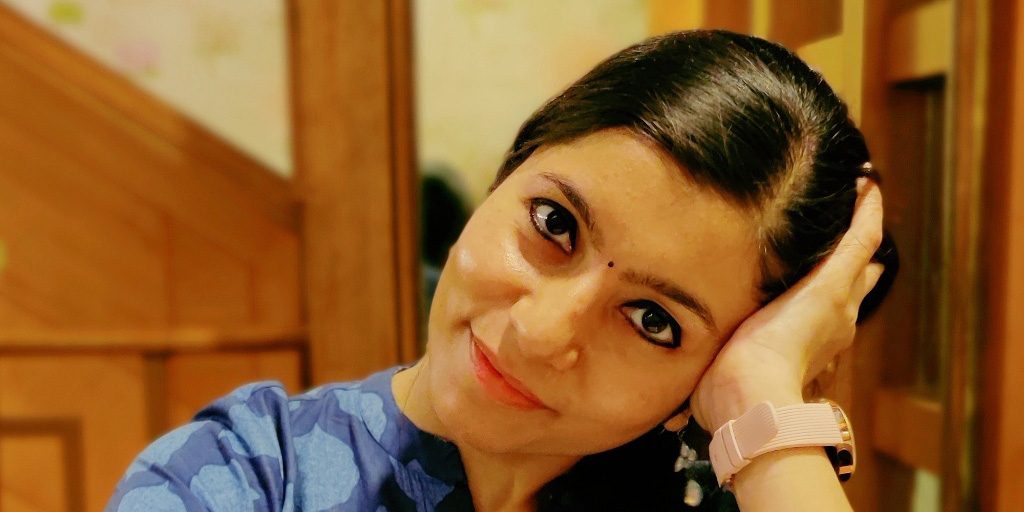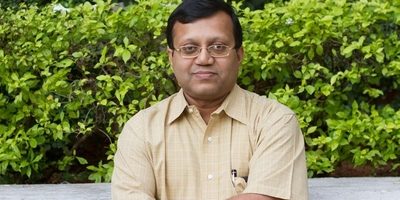
Emerging thought leader Dr. Amanpreet Kaur on what drives her to improve mental health in India
Dr. Amanpreet Kaur is a practicing and registered Clinical Psychologist who has trained extensively in various psychological and psychiatric treatment modalities, specifically third generation cognitive behaviour therapies, grief and psycho-oncology. Amanpreet’s current work at The George focuses on stigma related to mental health, better mental health care, awareness, development, and implementation of psychosocial interventions. She talks about her ongoing projects and the impact of COVID-19 on mental health.
Current research
I am working on and managing three projects focusing on mental health in different settings and populations. SMART Mental Health aims to evaluate a multifaceted primary healthcare worker intervention including a community-based anti-stigma campaign and a mobile device-based decision support system. INDIGO, a project across five countries, seeks to reduce stigma against people with mental illness, and modify attitudinal barriers within primary health care, community workers and mental health professionals. I am a co-investigator on ANUMATI – a project looking at Common Mental Disorders like depression, anxiety, suicide risk and substance abuse among adolescents living in urban slums to develop a resilience enhancing intervention module.
My overall research interests include mindfulness and mindfulness integrated psychological interventions, cognitive behaviour therapy, tele-medicine and palliative care. I am also interested in training and supervision of health workers and health care providers, caring of carers, and developing intervention programs for professionals, students, patients and their families.
Driven by empathy and passion to make a difference
I have always been attuned to others’ emotions and distress and drawn to healing. During my clinical practice, in both government and private settings, I have seen first-hand the huge gap in mental health treatment in India. There is lack of awareness about mental illness, availability of mental health services, treatment, and management. People don’t know when to seek help, what to do and whom to reach out to. They are unclear about the difference between a psychiatrist, counsellor, clinical psychologist and psychiatric social worker. There are myths and stereotypes about mental illnesses; death is considered a taboo word, even within trained health professionals. Much of this stems from stigma related to mental illness. Therefore, stigma needs to be addressed and societal change is fundamental to any policy related to mental health. I am driven to work on this holistically.
Silver lining of the pandemic
COVID-19 has been a mixed bag - with challenges and opportunities related to mental health. We’ve felt ‘death anxiety’ closely during the catastrophic second wave in India with incessant lockdowns. Hazards of working from home, no social interactions, gender differences in balancing household chores with office work has gravely affected people globally. Children and adolescents have been learning remotely for a year and half now, which itself has led to several behavioural issues! The positive is that we can see people talking about mental health - about their stress, trauma and burnout.
We must seize this opportunity to steer policy and discourse. Why is mental health not part of school curriculum, why is there a lack of trained professionals, specialised clinics and hospitals? These are some questions worth asking.
Personal impact
The pandemic made my schedule busier than ever before - never have as many colleagues, friends, family and patients (including health professionals) reached out to me for support dealing with grief, stress and anxiety. At The George, we thought it was important to develop tools to help colleagues and external members coping with the loss and trauma COVID brought. I developed several resources and contact lists for team members. I conducted several sessions on mindfulness and coping with grief for colleagues in the India and Australia office. As part of INDIGO, I helped create the online consenting process for data collection and we remotely conducted qualitative interviews with people with mental illness and even professionals providing mental health services.
An ‘emerging thought leader’
Thought leadership is an opportunity to reach an audience beyond those reading scientific journals. It involves connecting through articles, blogs, workshops and tapping into wider networks. For healthier societies that prioritise mental health – both preventive and promotional - we need to connect with not just clinical, but various non-clinical populations.
Through my work I hope to contribute to a positive change - at an individual, societal and policy level.
When not working…
I am a trained Hindustani classical vocalist. I am very keen on art, writing poetry, baking, reading books on spirituality, fiction and forensic psychology! I love interacting with my friends and family regularly. I practice mindfulness meditation and regular physical exercise to unwind and stay sane! My motto in life? ‘Practice what you preach’.




